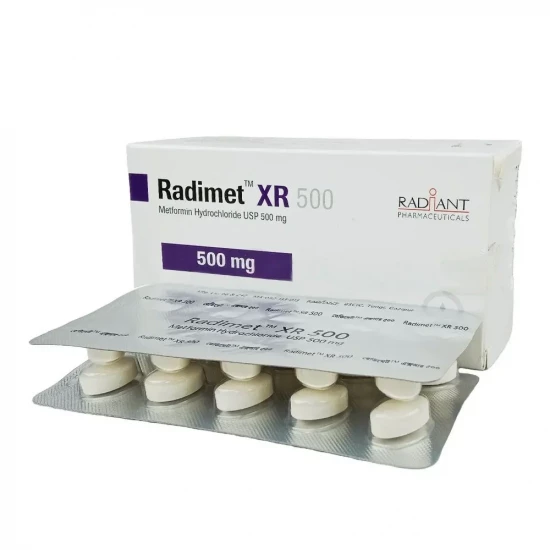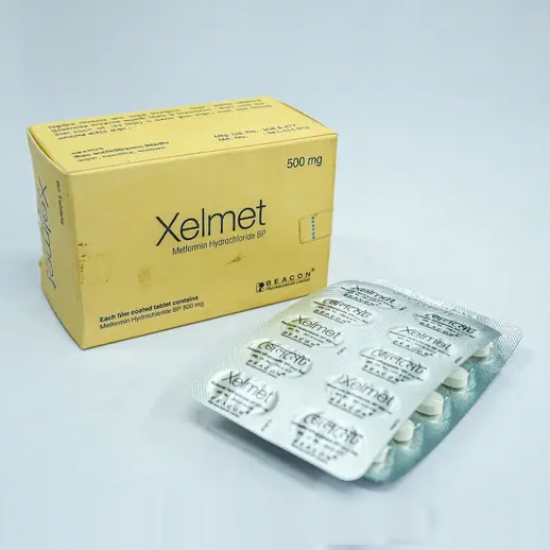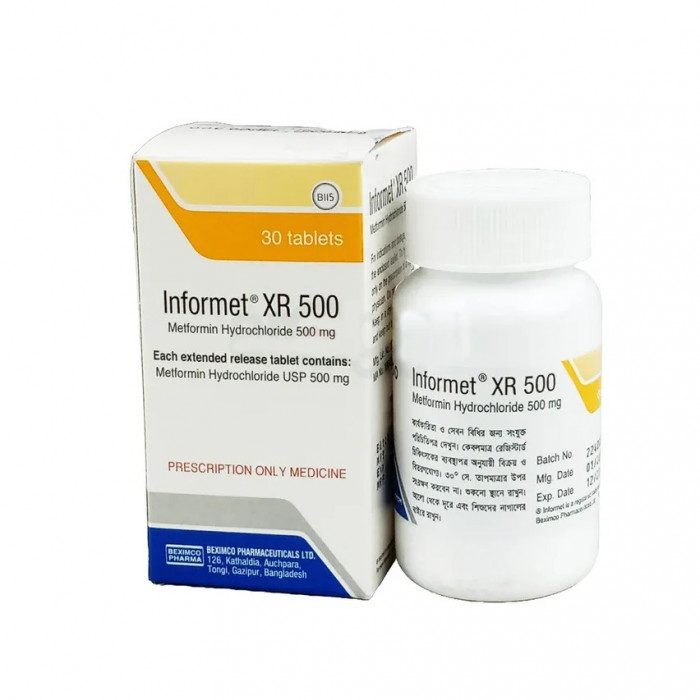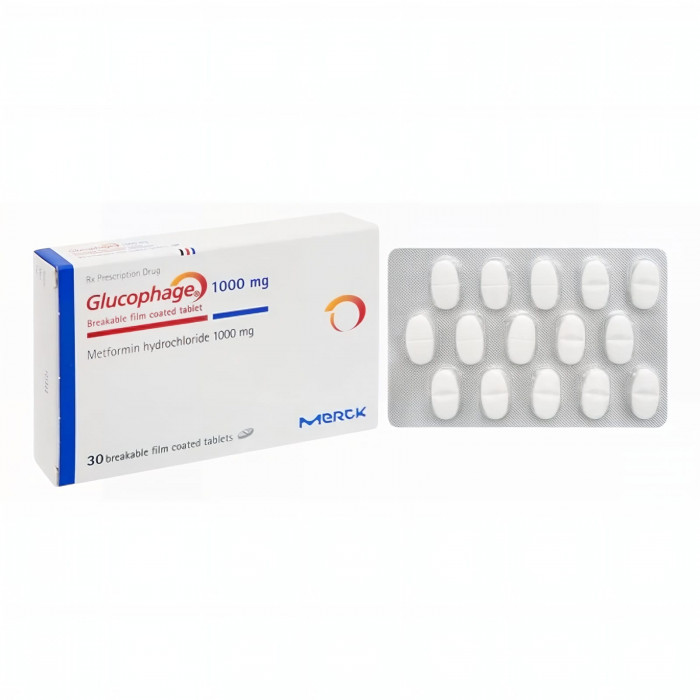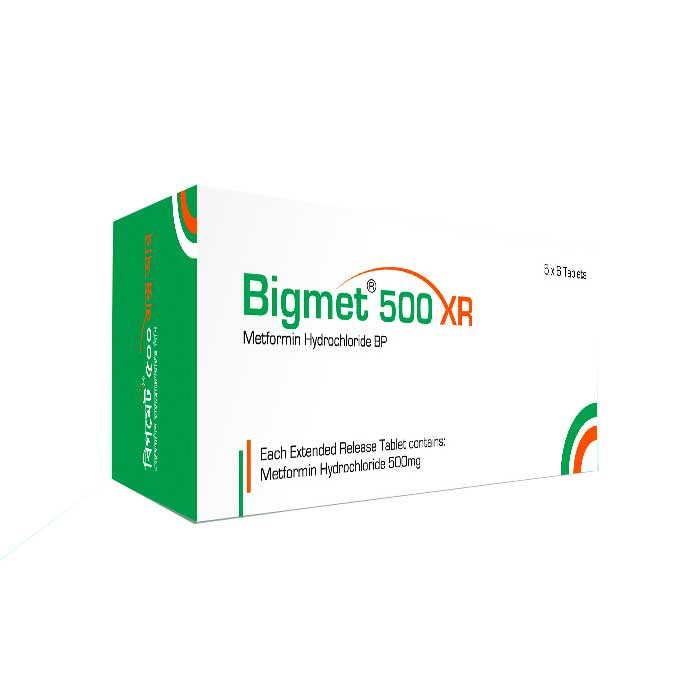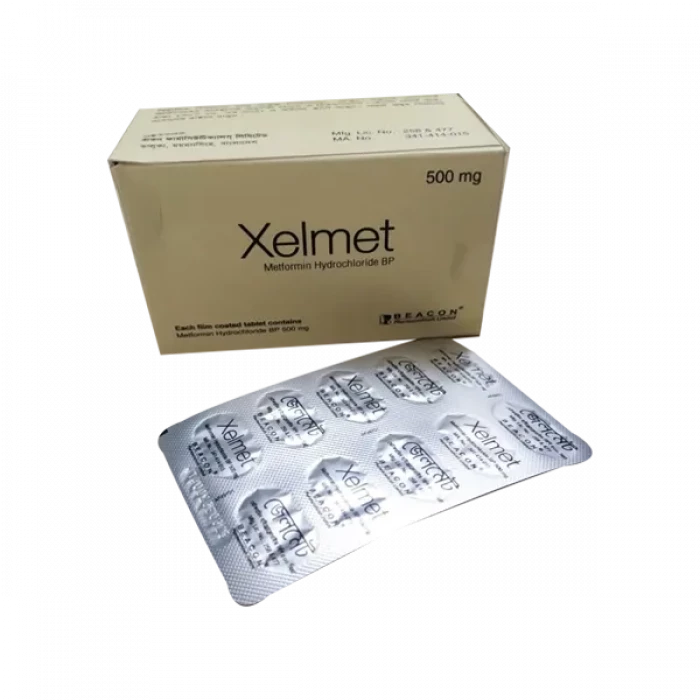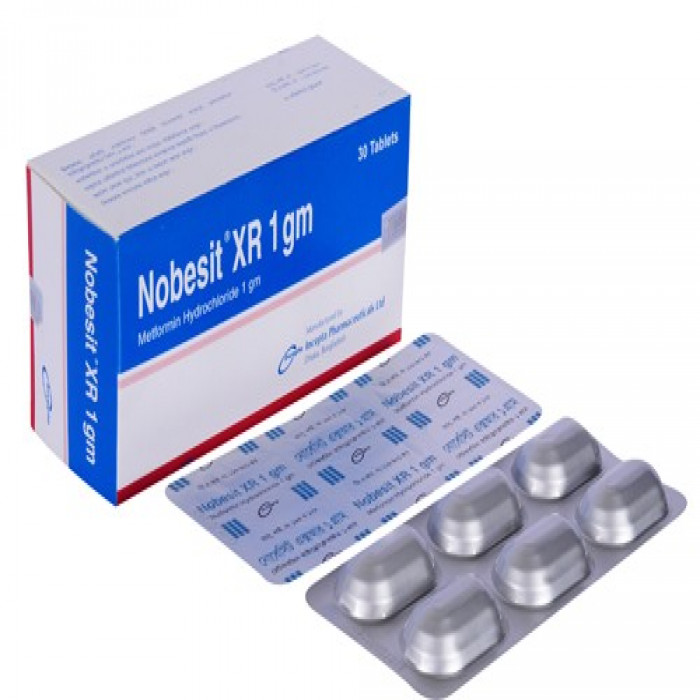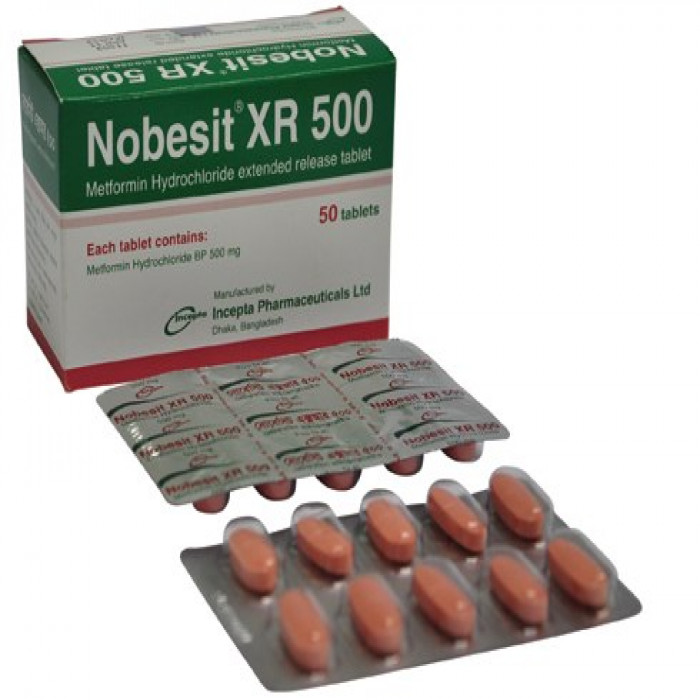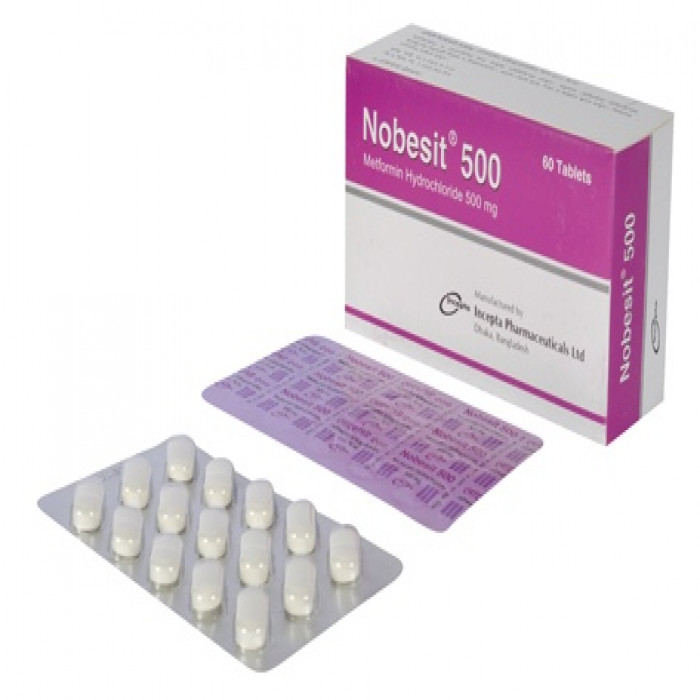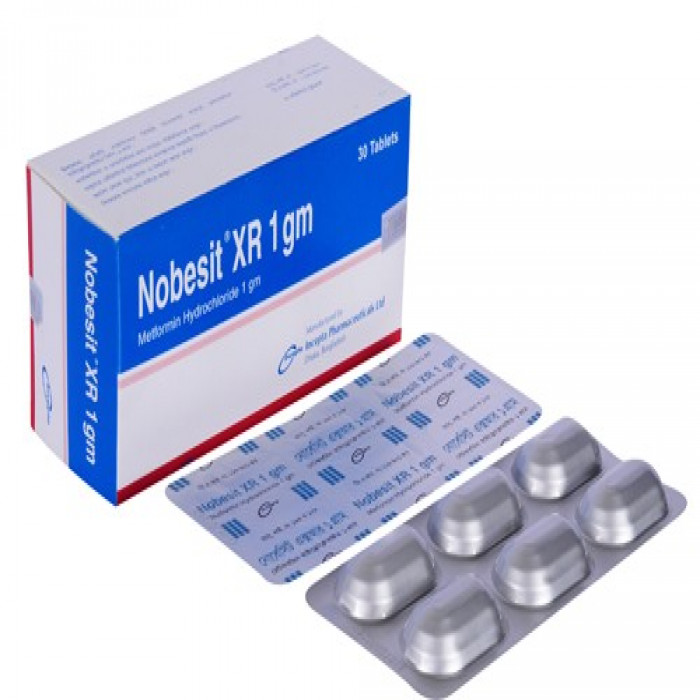
✔ 100% Authentic Product
👁️ Currently Viewing 3216
MET 500mg Tablet 10pcs
Met 500 is used to treat type 2 diabetes mellitus and Polycystic Ovary Syndrome (PCOS) in women. It helps control blood sugar levels and prevent diabetes-related complications.
Discount
Price: ৳ 38
MRP:
৳
40
5%
Off

100% Genuine Products, Guaranteed

Safe & Secure Payments, Always

Fast, Secure & Efficient Delivery

Proper Packaging
 Cash on Delivery - All over Bangladesh
Cash on Delivery - All over Bangladesh Regular Delivery - 12-24 Hours, Dhaka City* Charge Tk.39-59
Regular Delivery - 12-24 Hours, Dhaka City* Charge Tk.39-59 Regular Delivery - 24-48 Hours, Other Cities* Charge Tk.99-110
Regular Delivery - 24-48 Hours, Other Cities* Charge Tk.99-110
 ফ্রি ডেলিভারিঃ - ৯৯৯ টাকা+ অর্ডারে, ঢাকা
শহরে
ফ্রি ডেলিভারিঃ - ৯৯৯ টাকা+ অর্ডারে, ঢাকা
শহরে ফ্রি ডেলিভারিঃ - ২৯৯৯ টাকা+ অর্ডারে, ঢাকার
বাহিরে
ফ্রি ডেলিভারিঃ - ২৯৯৯ টাকা+ অর্ডারে, ঢাকার
বাহিরে
100% Genuine Products, Guaranteed
Safe & Secure Payments, Always
Fast, Secure & Efficient Delivery
Proper Packaging
 Cash on Delivery - All over Bangladesh
Cash on Delivery - All over Bangladesh Regular Delivery - 12-24 Hours, Dhaka City* Charge Tk.39-59
Regular Delivery - 12-24 Hours, Dhaka City* Charge Tk.39-59 Regular Delivery - 24-48 Hours, Other Cities* Charge Tk.99-110
Regular Delivery - 24-48 Hours, Other Cities* Charge Tk.99-110 ফ্রি ডেলিভারিঃ - ৯৯৯ টাকা+ অর্ডারে, ঢাকা
শহরে
ফ্রি ডেলিভারিঃ - ৯৯৯ টাকা+ অর্ডারে, ঢাকা
শহরে ফ্রি ডেলিভারিঃ - ২৯৯৯ টাকা+ অর্ডারে, ঢাকার
বাহিরে
ফ্রি ডেলিভারিঃ - ২৯৯৯ টাকা+ অর্ডারে, ঢাকার
বাহিরে
✅ Description:
- Metformin Hydrochloride Tablet helps maintain balanced blood sugar levels and is used to treat Type 2 diabetes, heart disorders, and polycystic ovary syndrome.
- Decreases glucose production by the liver, suppressing its release in the body.
- Increases insulin sensitivity, allowing better absorption of glucose by the body.
- Manages blood sugar levels to prevent complications like kidney failure, obesity, and heart disorders.
- Does not increase insulin but decreases sugar production by the liver.
- Reduces appetite and enhances insulin sensitivity, lowering blood glucose levels.
- Aids in weight loss and decreases cholesterol levels.
- Pregnant women, breastfeeding mothers, and children below ten years should avoid this medication.
- Inform your doctor about liver disease, kidney disorders, heart disease, allergies, and diabetic ketoacidosis.
- Avoid alcohol consumption to reduce the risk of lactic acidosis.
- The doctor determines the dosage based on age, condition severity, and other medications.
- Follow the prescribed course without skipping doses.
- Seek immediate medical attention if any side effects are detected.
- Hypoglycemia is not observed with standard doses; overdosage can lead to lactic acidosis.
- Hemodialysis may be useful for removing excess drugs in suspected overdosage cases.
Safety Advices

Alcohol
UNSAFE
Consumption of alcohol with Met 500 is considered unsafe. It may lead to adverse effects.

Pregnancy
CONSULT YOUR DOCTOR
- Met 500 is generally considered safe to use during pregnancy. Limited human studies show low or no adverse effects on the developing baby

Breastfeeding
CONSULT YOUR DOCTOR
Met 500 is probably safe during breastfeeding. Limited human data suggests minimal risk to the baby.

Driving
Driving ability may be affected if blood sugar levels are too low or too high. Avoid driving if experiencing symptoms related to blood sugar fluctuations.

Kidney
- Met 500 should be used cautiously in patients with kidney disease. Dose adjustment may be necessary, and regular monitoring of kidney function is advisable.

Liver
- Met 500 should be used with caution in patients with liver disease. Dose adjustment may be required. It is generally initiated with a low dose in mild to moderate liver disease, and its use is not recommended in severe liver disease.
✔️ Uses of MET 500
Type 2 Diabetes Mellitus, Polycystic Ovary Syndrome (PCOS), Obesity, Cardiovascular Diseases, Hypertension,
✔️ How does MET 500 work?
Metformin, the active ingredient, is a biguanide with antihyperglycaemic effects. It lowers both basal and postprandial plasma glucose by various mechanisms.
✔️ Side Effects of MET 500
Common side effects include anorexia, nausea, vomiting, diarrhea, weight loss, occasional metallic taste, weakness, hypoglycemia, rash, and malabsorption of vitamin B12.
✔️ Quick Suggestions:
- Follow the diet and exercise program recommended by your doctor to effectively control diabetes.
- Regularly monitor blood sugar levels to detect and manage hypoglycemia, especially when combined with other antidiabetic medicines or alcohol.
- Inform your doctor if you experience symptoms like deep or rapid breathing, persistent nausea, vomiting, or stomach pain, as these may indicate a rare but serious condition called lactic acidosis.
- Prolonged use of Met 500 may lead to vitamin B12 deficiency, resulting in anemia. Notify your doctor if you experience symptoms like fatigue, pale skin, shortness of breath, or headache.
- Your doctor will regularly monitor blood sugar levels and kidney functions while you are on Met 500.
✔️ Indications of Metformin Hydrochloride
Type II Diabetes Mellitus:
Diabetes mellitus (DM) is a health condition characterized by elevated blood sugar levels. It occurs due to insufficient insulin production or the body's inability to effectively use insulin. Insulin is a hormone produced by the pancreas, and it plays a crucial role in converting glucose from food into energy. There are two main types of diabetes:
- Type I DM: This type involves little to no production of insulin by the pancreas.
- Type II DM: This type is characterized by insulin resistance, where the body's cells do not respond properly to insulin. MET 500 Tablet is used to help regulate blood glucose levels in individuals with type 2 diabetes, both in adults and children.
Polycystic Ovary Syndrome (PCOS):
Polycystic ovary syndrome is a hormonal disorder affecting women of reproductive age. It involves the enlargement of ovaries with cysts formed on the outer lining. PCOS is associated with hormonal imbalances, irregular menstrual cycles, and other symptoms. MET 500 Tablet is sometimes used in the treatment of PCOS.
MET 500 Tablet:
- Usage in Type 2 Diabetes: Helps in reducing blood glucose levels by addressing insulin resistance.
- Usage in PCOS: Can be used in the management of Polycystic ovary syndrome to address hormonal imbalances.
✔️ Pharmacology
- Reduces both baseline and postprandial plasma glucose levels.
- Differs from sulfonylureas and does not induce hypoglycemia.
- Enhances insulin sensitivity.
- Increases peripheral glucose uptake and utilization.
- Lowers hepatic glucose production.
- Reduces intestinal glucose absorption.
- Metformin is effective in treating type 2 diabetes by targeting multiple aspects of glucose metabolism.
- It is known for improving insulin sensitivity, reducing glucose production by the liver, and decreasing intestinal glucose absorption.
- Unlike some other antidiabetic medications, metformin does not stimulate insulin secretion, minimizing the risk of hypoglycemia.
- The overall effect is a better control of blood sugar levels in individuals with type 2 diabetes.
✔️ Dosage & Administration of Metformin Hydrochloride
- The initial dose varies for type 2 diabetes and PCOS. Adjustments are made based on the patient's condition and response to treatment.
- Contraindicated in severe renal impairment. Regular monitoring is essential for those at risk for renal impairment.
- Take Met 500 with food to avoid nausea and abdominal pain. Consistency in timing is crucial for optimal benefits.
✔️ Interaction
Additive effects with sulfonylureas. Thiazide diuretics, corticosteroids, phenothiazines, oral contraceptives, sympathomimetics, niacin, calcium channel blockers, isoniazid, and ACE inhibitors may affect glycaemic control. Potential fatal interaction with iodinated contrast agents.
✔️ Contraindications
Avoid acute or chronic metabolic acidosis, renal failure, severe renal or hepatic impairment, dehydration, severe infection, shock, cardiac failure, congestive heart failure (CHF), insulin-dependent diabetes mellitus (IDDM), severe thyroid impairment, acute or chronic alcoholism, and conditions causing tissue hypoxia.
✔️ Metformin Hydrochloride during Pregnancy & Lactation
Pregnancy:
- Uncontrolled diabetes during pregnancy (gestational or permanent) increases the risk of birth defects and perinatal mortality.
- It is advised not to use metformin to treat diabetes when planning to become pregnant and during pregnancy.
- Insulin is recommended during pregnancy to maintain blood sugar levels as close to normal as possible, reducing the risk of fetal malformations.
Breastfeeding:
- Metformin is excreted in human milk.
- No adverse reactions were observed in breastfed newborns/infants.
- Limited data is available; breastfeeding during metformin treatment is not recommended.
- The decision to continue breastfeeding should consider the benefits and potential risks of adverse effects on the child.
✔️ Precautions & Warnings
Exercise caution in patients with CHF, risk of lactic acid accumulation, and during stress-related states. Temporary discontinuation may be necessary for certain medical procedures.
✔️ Storage Conditions
- Store MET 500mg Tablet below 25°C at a cool and dry place.
- Protect it from direct sunlight and moisture.
- Keep it out of reach of children and pets.
⚠️Disclaimer:
At ePharma, we’re committed to providing accurate and accessible health information. However, all content is intended for informational purposes only and should not replace medical advice from a qualified physician. Please consult your healthcare provider for personalized guidance. We aim to support, not substitute, the doctor-patient relationship.






